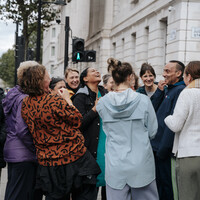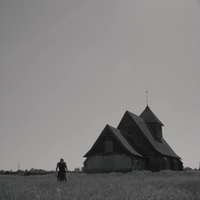LCDS student Ellie Peacock on getting support for dyslexia

News Story
First year student Ellie Peacock has Dyslexia, which she had been assessed for in school, but she needed a new assessment before starting a degree. Students like Ellie who need support are entitled to apply for the Disabled Student Allowances, a government funded package of software, tuition, and assistive technology. However, applying for it is a fairly lengthy process - it can take up to 12 weeks even if you've got the right evidence of your disability - so Ellie was keen to get started. She contacted London Contemporary Dance School's Learning Support Coordinator John Dunn in her first term because she had heard about the funding that might be available to her to support her during her course. Now at the end of her first year at LCDS, John caught up with Ellie to find out how she got on.
So you’ve been granted DSAs. Well done. Do you think the DSA support you have been awarded will be helpful and why?
Ellie: I’m extremely grateful for the support I’ve been awarded and really do think this will make a difference. Having a large selection of tools, technology, and teaching sessions use will allow me that bit of extra support where it’s needed. It can just help take the pressure away from some of my challenges, allowing me to really work on the assignment and articulating my points instead of being focused on the smaller details that can take an awful lot of time without the needed technology.
How did you find out about the Disabled Student Allowances (DSA), the fund from Student Finance to support disability related costs?
The DSA is something I found out about in my old sixth form. Unfortunately, the abrupt ending meant I couldn’t get the evidence I needed in time for me to apply for the DSA at the very beginning of my time at LCDS.
You needed evidence of your SpLD (Specific Learning Difference) to apply for the DSAs. Did you find the process of getting an assessment straight forward and was it difficult?
The process was made very straight forward with guidance always provided. I emailed our learning support coordinator and he helped me set the appointments I needed and a step-by-step plan of what I needed to do next. Any questions I had where always answered!
The assessment is a kind of test of strengths and weaknesses in how we think. What was the assessment actually like?
The assessment overall was a really positive experience, it’s allowed me to learn a lot more about myself and how my brain works. The tests are hard in the sense that they are there to challenge your weakness, but you can’t let yourself get frustrated or feel embarrassed at your attempts. The tests you struggle with the most will be far more beneficial in the long run, as these are the ones that can highlight the support you may need. You are always supported through the mini assessments, it truly is a safe and non-judgmental setting.
I’m extremely grateful for the support I’ve been awarded and really do think this will make a difference.
Ellie Peacock
Do you have strengths and skills which you think are related to Dyslexia? Does it help you in your dance practice?
For me I think a huge strength of Dyslexia is the discipline it gives you. It teaches you the importance and power of a good work ethic and determination, because I honestly believe despite having dyslexia you can go on and achieve anything you set your mind too. It may just take a lot harder work and hours persevering! I was diagnosed later in my school life but always knew that I was just someone who had to put more work in if I wanted to see better results. It never just came ‘naturally’ and now I do see that as a blessing (I didn’t always!) But it forced me to develop determination and resilience, which has been hugely important for dance. Dyslexia provides a new way of thinking, it can help with creativity, being solution focused, seeing and understanding the bigger picture. These are all skills that are a necessity for dancers. I came out of this process realising that more of my strengths may be there or have been developed because of my dyslexia. I think it’s always important to just ask for help when you need it and really soak up the information as much as possible.
Was the transition to full time dance training at LCDS challenging? Was it rewarding?
For me the transition into full time training had more of a progressive feel due to the pandemic influencing the rules and restrictions. I found it so extremely exciting and a positive experience. It really is a new chapter for everyone so however you are feeling it’s guaranteed one of your peers will also be feeling the same. It’s most definitely been rewarding! I’m very excited to see what second year will bring.
Do you feel more confident to tackle the challenges of the course now than when you started?
I definitely feel more confident knowing the right individual support is there whenever I may need it. Knowing you have people around you who truly know how to help is amazing!
Is there anything else you’d like to add?
I think it’s really easy to see your dyslexia as a burden and at times it still can be. However, it’s about challenging any negative stigma you feel or have heard about it. Some education systems are sadly still not designed for Dyslexics, however, the world most certainly is and needs that creative flare. At LCDS you are treated the exact same but still extremely supported. That individuality, curiosity and creative mind is encouraged by the school! Having the assessments just means you can learn how to best support yourself, it’s an insightful experience and one I’m definitely glad I went.
Ellie Peacock's Dyslexia Assessment and DSA blog was first published in The LCDS Insider 26/07/21


